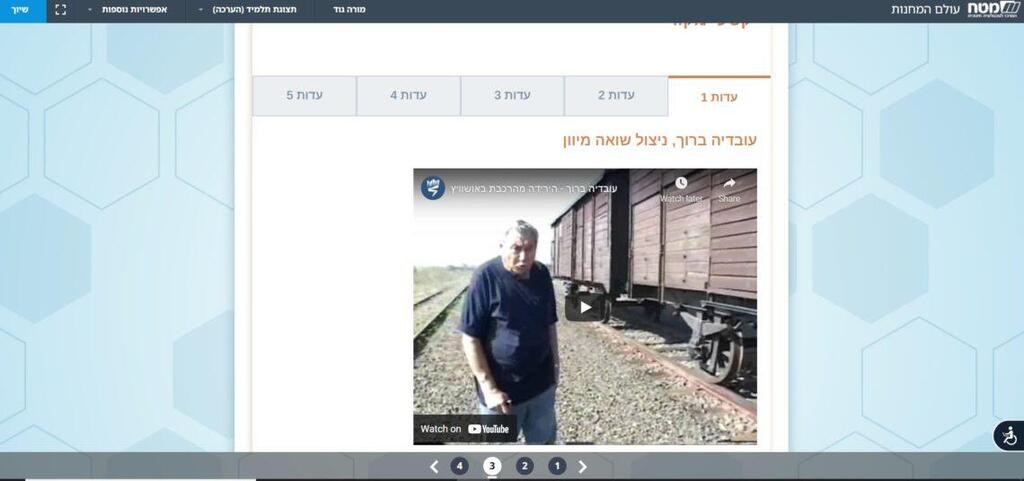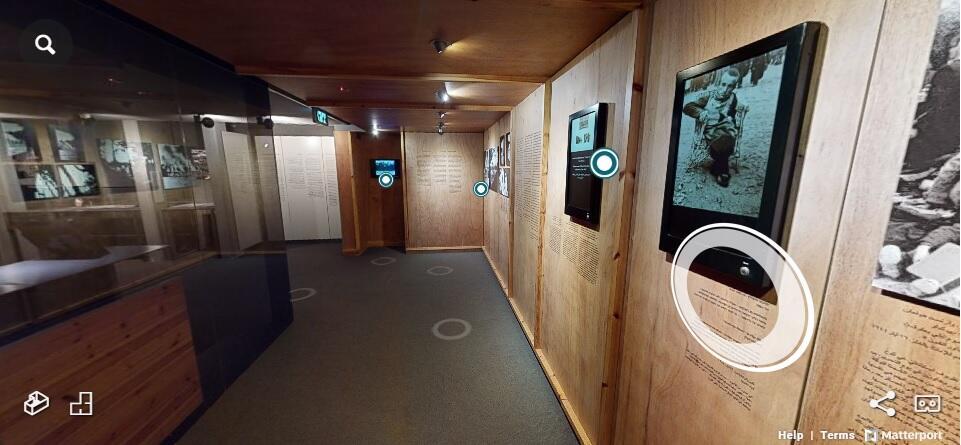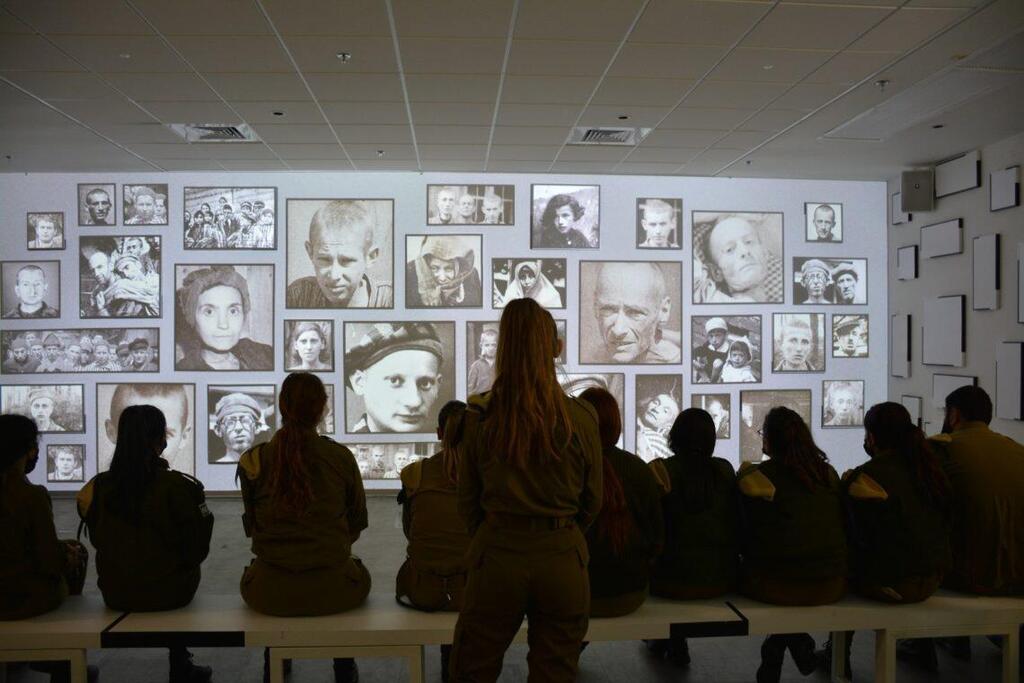Israel is set to launch a new online platform to teach the history of the Holocaust to high school students.
The Education Ministry, with the help of the Center for Educational Technology, has developed an innovative new curriculum that will be implemented at the start of the next school year for high school students in grades 10 and 11.
3 View gallery


The Holocaust curriculum in the new online program includes a wealth of video testimonies from survivors
(Photo: Screenshot)
Amos Raban, a digital history instructor at the Education Ministry, helped develop the program, which combines digital pedagogy, independent learning, and alternatives forms of assessment.
“Developing skills is more important than having more knowledge; it’s more competence-based than content-based,” Raban told The Media Line. “We have a flipped-classroom approach because this is basically the alternative to frontal instruction.”
Raban, who also teaches digital pedagogy at the Kibbutzim College of Education, Technology and the Arts in Tel Aviv, said that he is currently training teachers to use the Diamond 3.0 Hybrid History platform.
Rather than relying on textbooks to learn about the Holocaust, materials are all available online, alongside pictures, videos, infographics, and assignments.
“Everything is digital, we even have a YouTube channel that has instructional videos for different skills,” Raban explained. “If you want to know how to decipher a primary source [in history], we have a video that explains how to read it.”
The Education Ministry is encouraging students to not only be passive consumers of educational content but also to actively produce it as well. For instance, students will be asked to create videos and upload them online, not just read or write about what they learned.
Moreover, teachers will include digital media such as videos and podcasts in tests and assignments. Exams will be open book rather than focusing on memorization.
“I’m talking to educators in the United States and this is very uncommon – including a lot of digital media in exams and assignments,” Raban said.
The ministry also collaborated with the Ghetto Fighters’ House, a museum located in northern Israel that commemorates Jewish heroes from the Holocaust. During the COVID-19 pandemic, the ministry filmed the entire museum in a 360-degree video in order to create a virtual tour.
3 View gallery


As part of the Education Ministry’s new program, students can take part in a virtual tour of the Ghetto Fighters’ House Museum in Israel
(Photo: Screenshot)
“In one of our units, we included a self-guided tour of the museum,” he said. “Students can just ‘walk’ through the museum; there’s no noise and no school buses.”
Along with the Ghetto Fighters’ House, the online platform also includes content from a new museum that is slated to open in Latrun and will be dedicated to Jewish soldiers who fought the Nazis during World War II. The educators also worked together with Yad Vashem, Israel’s national Holocaust memorial, as well as Holocaust museums in Europe and the US.
“If you don’t understand the way culture is changing, you’re going to lose the way you can pass on memory to new generations,” Raban said of the new curriculum. “We want them to read books but the culture is changing. Let’s use smartphones to read, but not just to read but also to create. Change is when you use the new culture to save the memory that’s important to you.”
Yad Vashem also has shifted to a more interactive approach with regard to Holocaust education.
Ahead of Israel’s annual Holocaust Remembrance Day, which begins on Wednesday at sundown, Yad Vashem on Monday inaugurated a new educational center called “Before My Very Eyes” at the Ariel Sharon Israel Defense Forces training campus in the Negev.
The center features interactive exhibition areas that have been specially curated to generate discussion and encourage reflection. Yad Vashem, located in Jerusalem, regularly welcomes groups of IDF soldiers for tours and other educational activities.
The educational center in the Negev provides a very different experience from a regular museum visit, according to Yad Vashem spokesperson Simmy Allen.
“The program in the south can be conducive to inspiring the group into a dialogue, as opposed to here [at Yad Vashem], where we bring the chronological order of the Holocaust and the way that the Jewish experience was during the Second World War,” he said.
The exhibitions on display showcase different types of traditional environments during the war, such as a synagogue or Jewish home. There are places for visitors to sit and hold discussions as well.
3 View gallery


A group of IDF soldiers watch a guided tour through the “Before My Very Eyes” exhibition
(Photo: Yad Vashem)
“It’s very interactive. You have those classrooms built in regarding topics and there are educators that can work with you – all within the army base,” Richelle Budd Caplan, director of international relations and projects in Yad Vashem’s International School for Holocaust Studies, told The Media Line.
The younger generation continues to show an interest in learning about the history of the Holocaust, she said, but the way they do so has changed in recent years.
“Youngsters are interested in looking for themselves on YouTube, Instagram, TikTok,” Budd Caplan said. “Some of it is inappropriate and some of it is very appropriate. If you look at Yad Vashem’s website, you’ll see that there are films, including animation – where you didn’t have that 10 years ago. The whole focus is about personal stories and being accurate.”
Article written by Maya Margit
Reprinted with permission from The Media Line
First published: 10:25, 04.27.22

